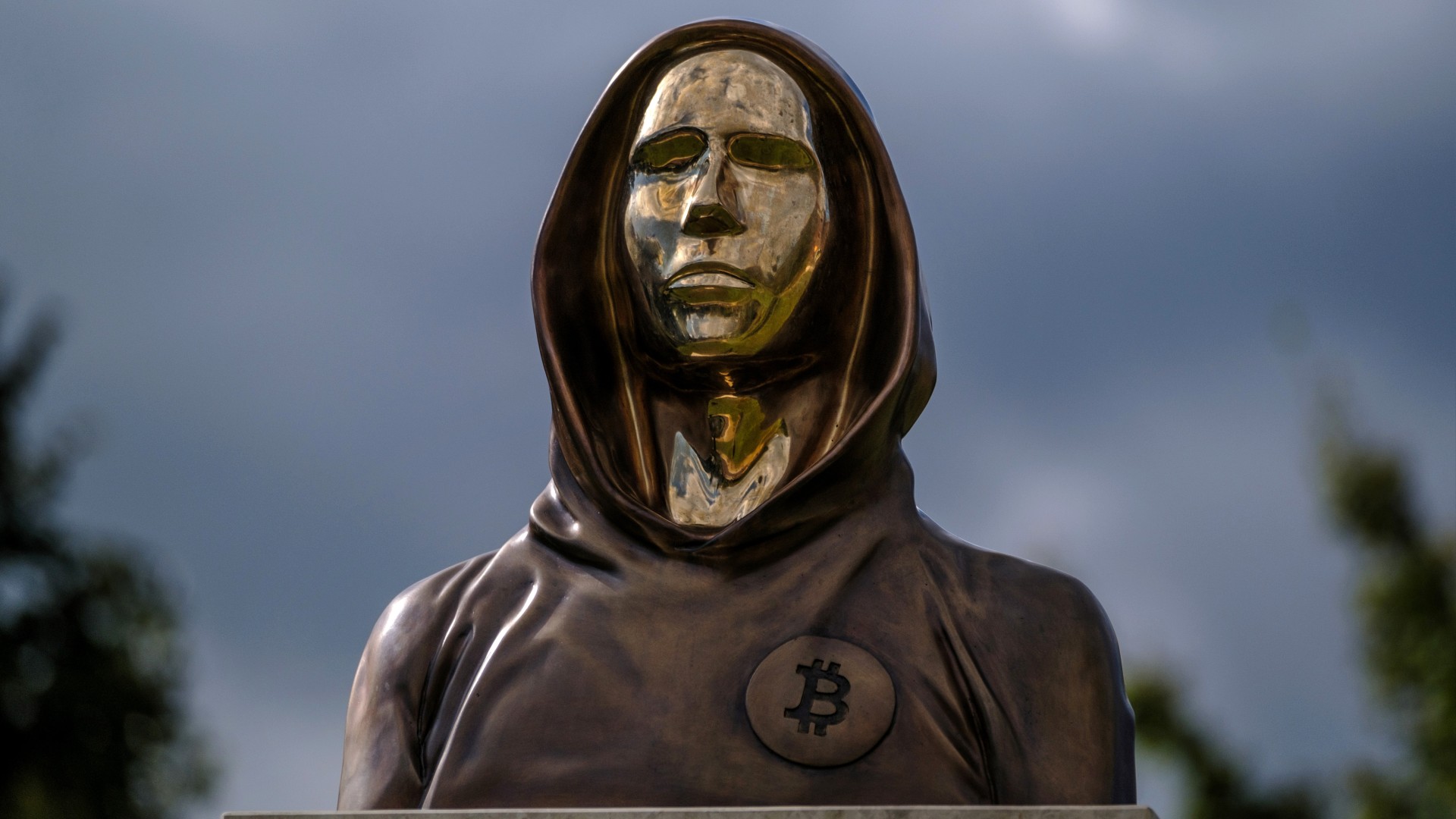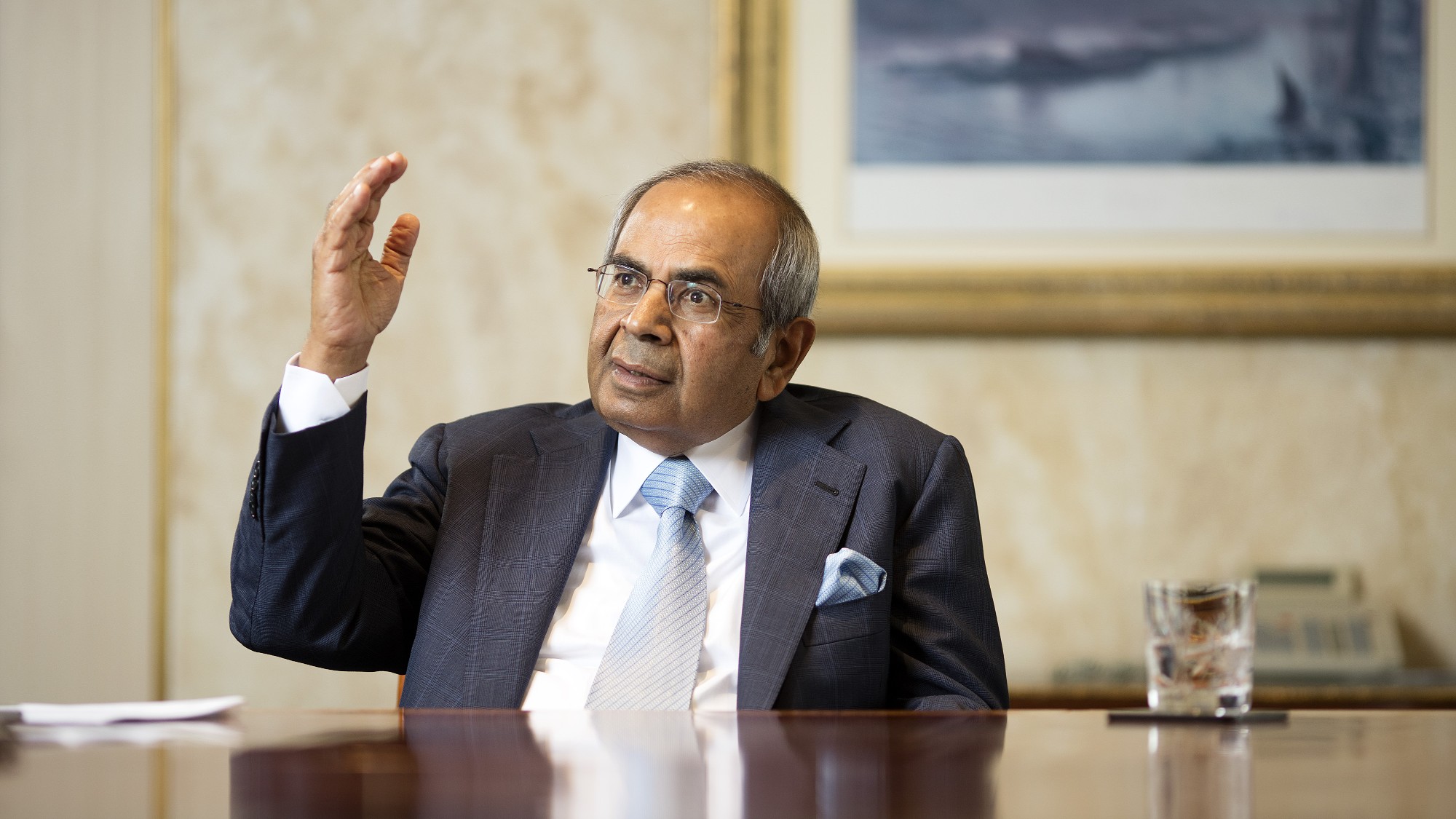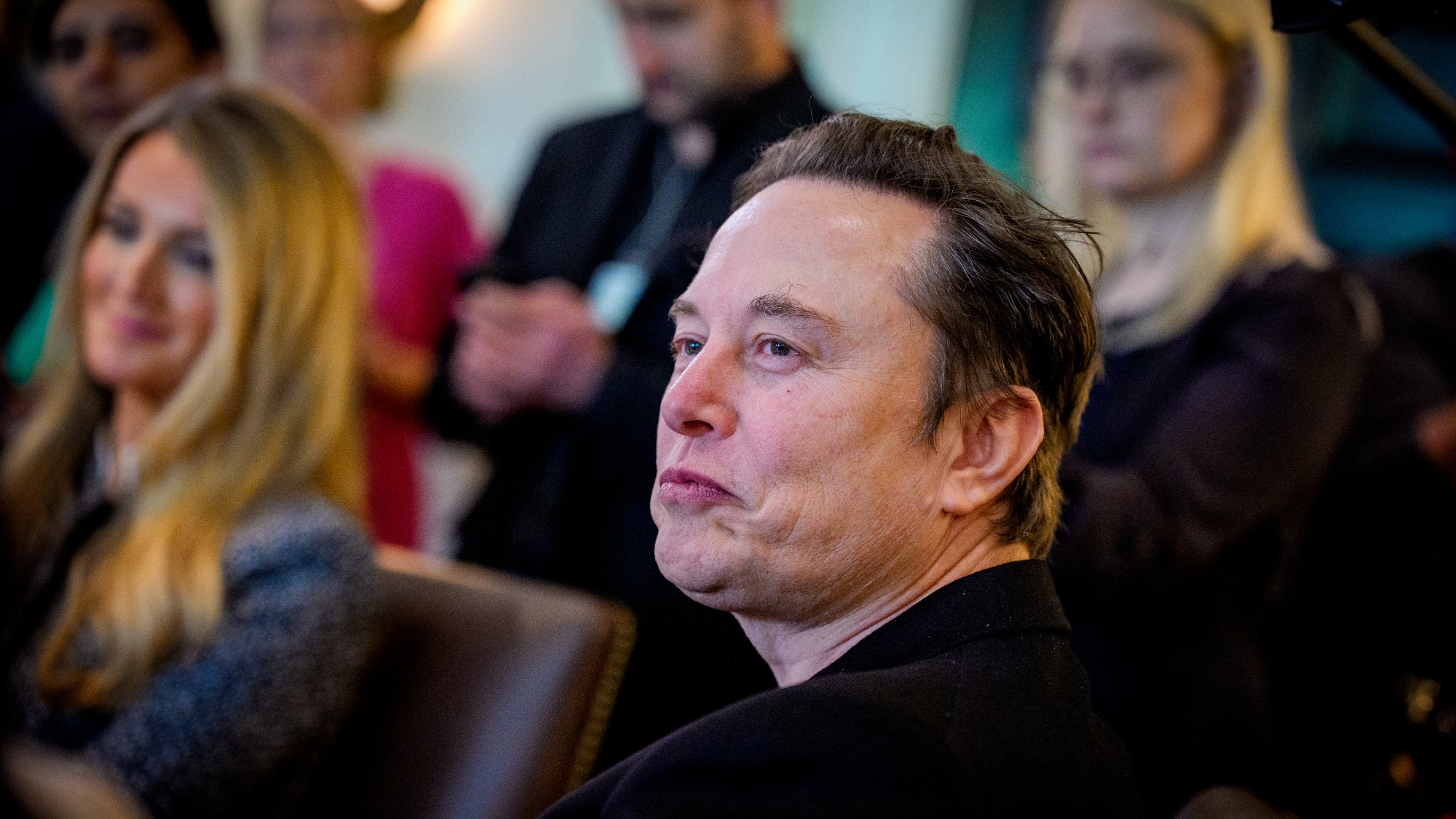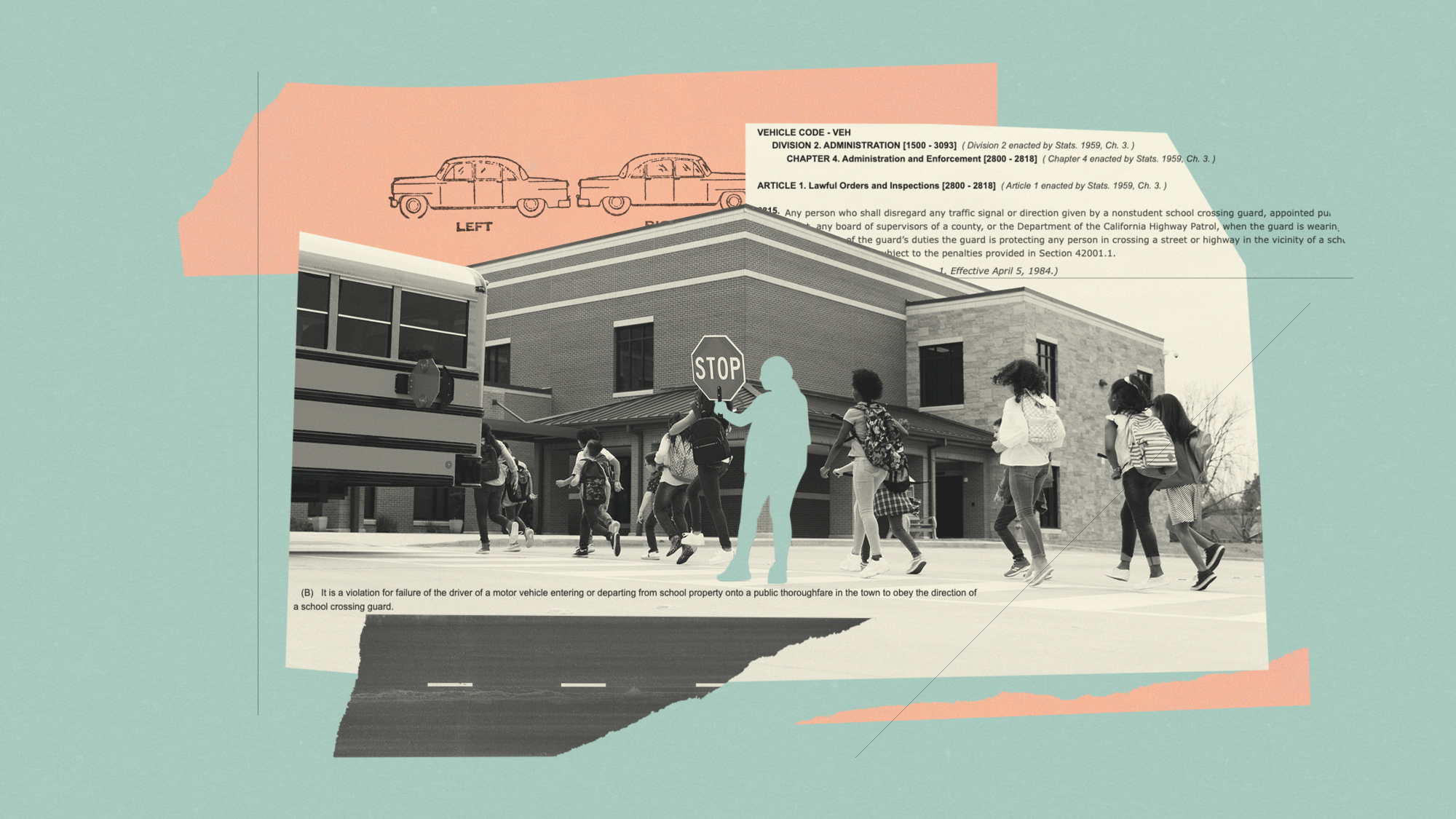The truth about who founded bitcoin
Satoshi Nakamoto's true identity is one of tech's biggest mysteries


A free daily email with the biggest news stories of the day – and the best features from TheWeek.com
You are now subscribed
Your newsletter sign-up was successful
The legend of Satoshi Nakamoto, the anonymous bitcoin founder, is a mystery built for the digital age. His true identity has become mythologized, and while no one knows who he is, he's become a symbol of a new era of freedom in finance and technology. The heat is now on an Australian scientist, who has claimed for years to be the enigmatic founder.
The hunt for Satoshi Nakamoto and the Craig Wright problem
The murky history of bitcoin began in 2008, in the "shadow of a global financial meltdown," when someone under the name Satoshi Nakamoto released a white paper outlining the vision for "a new electronic money and peer-to-peer payment system that would obviate the need for troublesome intermediaries like banks," Wired said. The enigmatic creator sent the first bitcoin transaction in 2009, and little more than two years later, they disappeared from the internet. "The hunt for Nakamoto began," said Wired.
The absence of a leader has helped bitcoin flourish since Nakamoto disappeared, making it "robust" by forcing it to evolve unfettered in an anarchistic system, software developer and early bitcoin adopter Jameson Lopp said to Wired. "Free from the overbearing influence of a founder, anyone that volunteered their time to work on bitcoin could have a say in its direction," Wired said. But one man's claims threaten to complicate that ecosystem.
The Week
Escape your echo chamber. Get the facts behind the news, plus analysis from multiple perspectives.

Sign up for The Week's Free Newsletters
From our morning news briefing to a weekly Good News Newsletter, get the best of The Week delivered directly to your inbox.
From our morning news briefing to a weekly Good News Newsletter, get the best of The Week delivered directly to your inbox.
Nakamoto's name has been linked to many people, including Australian computer scientist Craig Wright, who orchestrated an "elaborate but unconvincing demonstration" that he was the mysterious creator in 2016, Billy Bambrough said at Forbes. Since then, Wright has spent years "dragging naysayers through the courts in a largely unsuccessful attempt to legally be recognized as bitcoin's creator." With the help of former gambling billionaire Calvin Ayre, Wright has sued bitcoin developers, social media users, podcasters, and anyone else who doubted the credibility of his claims. However, last year, a leaked email hinted that Ayre's faith in Wright was waning.
The high-stakes lawsuit that could finally solve the mystery
Three years ago, a nonprofit coalition of crypto and tech companies called the Crypto Open Patent Alliance brought a lawsuit against Wright, asking the court to officially declare that he is not Nakamoto. Wright has leveraged his "substantial financial backing" against crypto developers based on a lie, "many of whom cannot even afford to present the most basic defense," Coinbase Chief Legal Officer Paul Grewal said on behalf of COPA. "This is the exact opposite of the vision that animated Satoshi's white paper in 2008," he said. "It's a drain on the talent and spirit of the crypto economy as a whole, and it needs to stop — now." The case finally went to trial in the U.K. on Feb. 5.
Unlike other recent crypto-related lawsuits, like Sam Bankman-Fried's fraud trial, "the COPA v. Wright case has attracted little attention," Joel Khalili said in Wired. The case has drawn a small crowd of photographers, journalists, and crypto enthusiasts. "But the case has the potential to be highly consequential."
A week into the case, the ongoing courtroom tension has "left onlookers astonished," Forbes' Susie Violet Ward said. "Each revelation seems to cast ripples of uncertainty and produce more questions than answers, further muddying the waters." So far, the trial has been a "showcase of detailed technical evidence," Ward said, "punctuated by moments of drama." At one point, Wright exclaimed, "But I AM Satoshi!" The declaration happened when he was cross-examined by Jonathan Hough, who represented COPA.
A free daily email with the biggest news stories of the day – and the best features from TheWeek.com
In a surprise twist, Wright admitted to the court that some of the documents he presented to prove he was Nakamoto were indeed forgeries, "a revelation that once again sent a wave of disbelief through the courtroom," Ward said. The admission came after COPA's "meticulous" presentation of evidence highlighting "time discrepancies in the documents, such as fonts that were not available when the documents were supposedly created."
The trial is expected to last about six weeks.
Theara Coleman has worked as a staff writer at The Week since September 2022. She frequently writes about technology, education, literature and general news. She was previously a contributing writer and assistant editor at Honeysuckle Magazine, where she covered racial politics and cannabis industry news.
-
 Political cartoons for February 15
Political cartoons for February 15Cartoons Sunday's political cartoons include political ventriloquism, Europe in the middle, and more
-
 The broken water companies failing England and Wales
The broken water companies failing England and WalesExplainer With rising bills, deteriorating river health and a lack of investment, regulators face an uphill battle to stabilise the industry
-
 A thrilling foodie city in northern Japan
A thrilling foodie city in northern JapanThe Week Recommends The food scene here is ‘unspoilt’ and ‘fun’
-
 Trump wants a weaker dollar, but economists aren’t so sure
Trump wants a weaker dollar, but economists aren’t so sureTalking Points A weaker dollar can make imports more expensive but also boost gold
-
 The longevity economy booms as people live longer
The longevity economy booms as people live longerThe Explainer The sector is projected to reach $27 trillion by 2030
-
 Texas is trying to become America’s next financial hub
Texas is trying to become America’s next financial hubIn the Spotlight The Lone Star State could soon have three major stock exchanges
-
 Why is crypto crashing?
Why is crypto crashing?Today's Big Question The sector has lost $1 trillion in value in a few weeks
-
 How could worsening consumer sentiment affect the economy?
How could worsening consumer sentiment affect the economy?Today’s Big Question Sentiment dropped this month to a near-record low
-
 Gopichand Hinduja and the rift at the heart of UK’s richest family
Gopichand Hinduja and the rift at the heart of UK’s richest familyIn The Spotlight Following the death of the patriarch, the family’s ‘Succession-like’ feuds are ‘likely to get worse’
-
 Musk wins $1 trillion Tesla pay package
Musk wins $1 trillion Tesla pay packageSpeed Read The package would expand his stake in the company to 25%
-
 Being a school crossing guard has become a deadly job
Being a school crossing guard has become a deadly jobUnder the Radar At least 230 crossing guards have been hit by cars over the last decade
